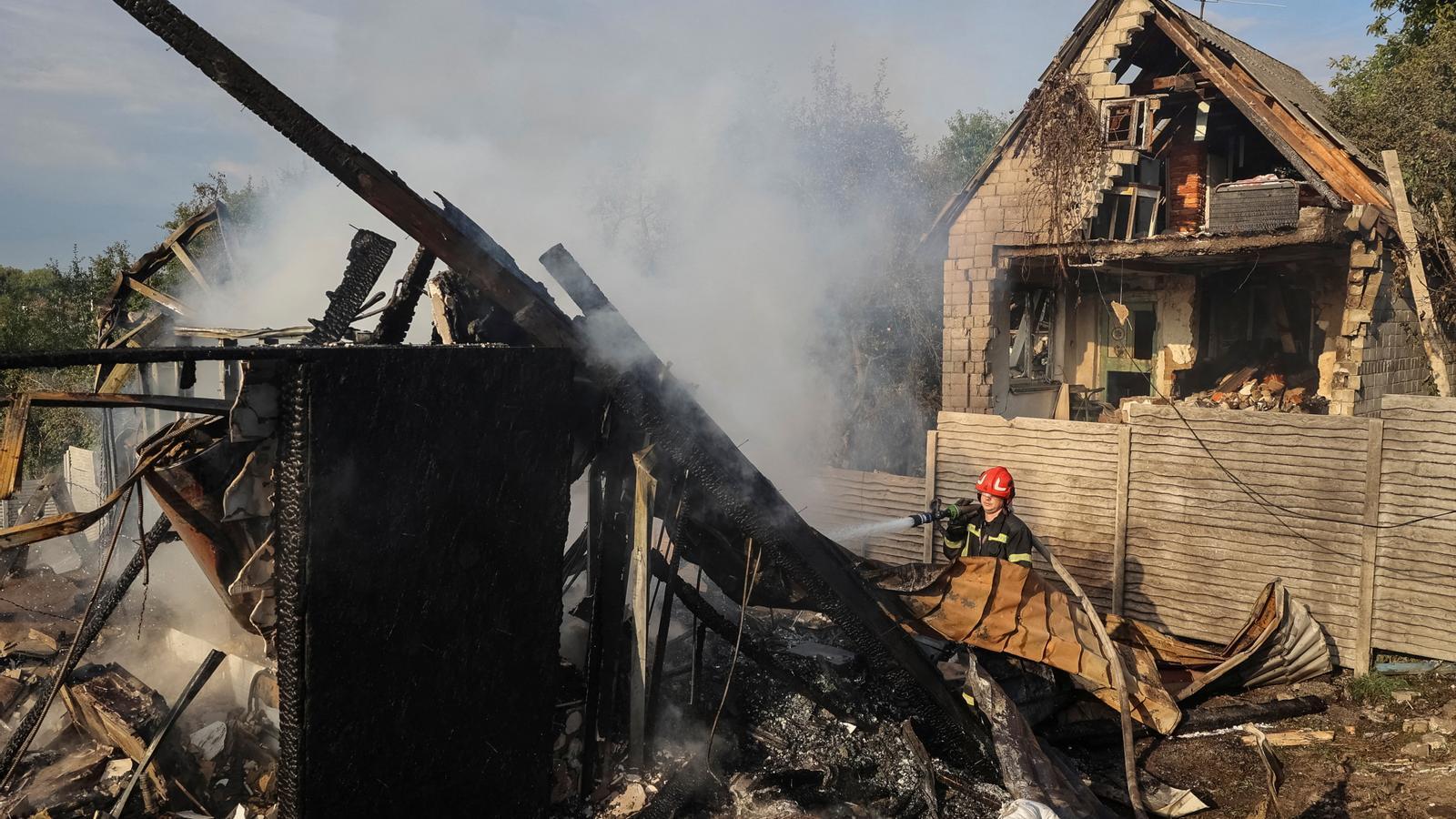Russia responds to the debate over security guarantees by attacking western Ukraine
A wave of missiles and drones leaves at least one dead in the city of Lviv, very close to the border with Poland.


LondonA wave of Russian missile and drone attacks hit western Ukraine again early Thursday morning. Although attacks on Lviv and western Ukraine have occurred from time to time, the area is far from the front lines of the conflict in Donbas. The offensive has caused at least one death and fourteen injuries. The explosions, which were heard in the Mukachevo, Lviv, Lutsk, and Rivne regions, once again highlighted Russia's ability to strike anywhere in Ukrainian territory. Not including tonight's casualties, from the Alaska summit between Presidents Donald Trump and Vladimir Putin At least 31 civilians were killed and 145 were injured.
The new attack, with 574 drones and more than 40 missiles, appears to be a direct warning to the Western powers, which have been discussing possible security guarantees for Ukraine in the last 72 hours in the event of peace. During these meetings the possible presence of Western troops in the country has been addressed as part of a future agreement.
But Russian Foreign Minister Sergei Lavrov has made it clear that Russia must have the power to veto any foreign troop presence in Ukraine, an idea that directly opposes the demands of both President Volodymyr Zelenskyy and his European partners. According to a recent report, U.S. Under Secretary of Defense for Policy Elbridge Colby has already informed his European counterparts that the White House intends to play a minimal role in these guarantees, despite President Trump saying in an interview with Fox News that the United States could provide air cover.
And in a further distancing that leaves everything up in the air and the possibility of peace even more remote, early this morning, in an interview on the same conservative network, Vice President J.D. Vance said that Europe will have to bear the brunt of the security guarantees if a peace agreement is reached. For his part, in this same sense, a high-ranking NATO official has declared to Political that "it is becoming clear that the US is not fully committed to anything."
On the other hand, this Thursday, Minister Lavrov continued to play the ambiguity game he practices so much, because although he said that Putin is willing to meet with the Ukrainian president, he warned that it is necessary to overcome a series of preconditions, reports Reuters. In addition, he questions Zelensky's "legitimacy" when it comes to signing a possible peace agreement, since his mandate was due to expire in May 2024, although there have been no elections due to the war. Moscow doubts that Zelensky has sufficient legal standing to sign anything, since he could be refuted by a possible successor. However, Kiev retorts that Zelensky remains the legitimate president.
In short, doubts persist about the Kremlin's real intentions, even more so given the magnitude of last night's attack. Several European leaders are skeptical of Putin's desire for peace, but at the same time are exploring ways to guarantee Ukraine's security with minimal US involvement. Lavrov, on the other hand, accuses Kiev and the major European capitals—London, Paris, Berlin, and Rome—of not wanting real peace and of working for the "strategic defeat of Russia." In his view, the Coalition of the Willing is trying to "erode the progress made in Alaska" and only seeks to impose a system of guarantees that isolates Moscow.
The Alaska Hangover
After the Alaskan fireworks, which only served to rehabilitate Putin internationally, and from Trump's summit with Zelensky and the Europeans At the beginning of this week, the possibility of peace or a truce is fading. This Wednesday, in a meeting with Western journalists in Kiev, President Volodymyr Zelensky once again demanded a "strong reaction" from the United States if Putin does not want to meet with him.
Zelensky assured that in the coming days "Ukraine hopes to clarify" the characteristics of the security guarantees, equivalent to NATO's Article 5, that each country in the Coalition of the Willing could provide. Contrary to popular belief, however, Article 5 of the NATO, which states that an attack against one partner means an attack against all, leaves it up to each country to choose how it will join a possible response.
Despite Zelensky's demand, then, beyond very vague threats and all kinds of contradictions, Trump prefers not to specify anything in order to keep Putin at his side. Thus, the Kremlin is buying time and advancing on the Donbas, albeit very slowly and at a very high cost in human lives: 830 in the last 24 hours alone, according to Ukrainian sources. Ukraine and Europe, once again, are exposed to the whims of the US president and his fondness for televised diplomatic shows.
